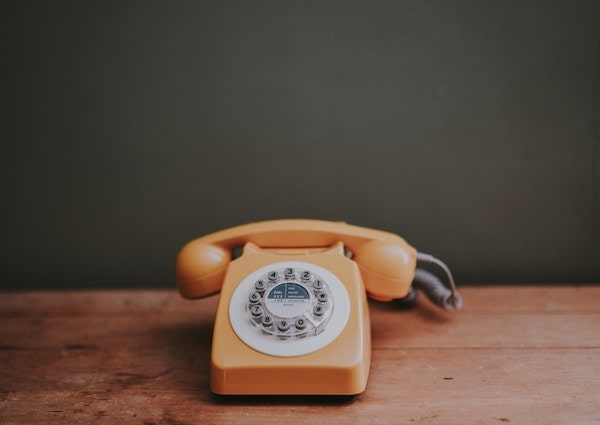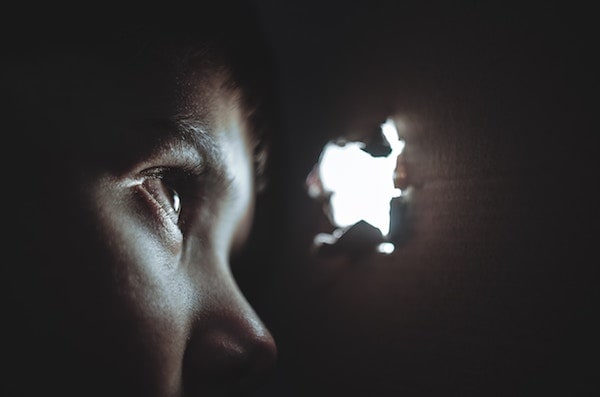Mad geniuses. Evil dolls. Slow zombies. This Halloween, we’ll see all of these horror film clichés come to life. Sure they’re fun, but are there lessons we can learn from them? What if they could teach us what not to do? We looked at seven scary tropes and what they might teach us about Internet trust.
The call is coming from inside the house.

The phone calls keep coming, each one scarier than the last. Ring. “Are you home alone?” Ring. “Have you locked the doors?” Ring. “Look in the basement.” It’s only then you realize the stalker has been in the house all along.
We lock our doors to make our homes more secure, but we don’t always think about the security of the things we connect to our home networks. An insecure connected device can put your whole network and the devices on it at risk. Meaning, yes, the cybersecurity threat could be coming from inside the house. By protecting your home network, you limit your devices’ exposure to online threats and help mitigate the risk they may pose to others. You can make your network more secure by using encryption, a strong password, and firewall for your home WiFi network.
Sometimes your car won’t start when you really, really need it to.

You’ve escaped the abandoned hospital, you’ve made it to your car, and now you’re hunched over the steering wheel, hand shaking as you turn the ignition. There’s just one problem. The car won’t start. That’s when you spot the sticker in the window. The last maintenance call was over a year ago.
Maintain your devices and apps so you’re not stuck in a sticky situation. If a device or app has an auto-update feature, turn it on! No system is perfectly secure, and security vulnerabilities are always being discovered and fixed with updates. Anything that’s Internet connected, from your light bulbs to your thermostat, should be updated.
Build a strong barricade.

The zombies are coming. They’ve chased you into the last room of the house. You push the chair against the door, hoping it will buy you enough time to get away. But when you hear the splinter of particle board and see the door slam open, you curse your decision to buy from the IKEA clearance rack.
You wouldn’t try to secure a door with flimsy furniture, so why would you trust a weak password, such as “letme1n,” to secure your email, devices, and everything else you rely upon? No matter how strongly your device or application is encrypted, if someone can figure out your password, they can access your data. Make sure to use strong passwords, stop reusing passwords, and turn on two factor authentication (2FA) for your applications and services. Taking these steps makes it harder for the bad guys to access your data.
There are clues in that old book that might help you.

The book looks out of place with the others. It’s heavy, covered in dust, and written in arcane language. At first you ignore it. But when you start to see ghostly apparitions, you realize you should have paid attention to it from the start.
We often ignore the fine print, mindlessly scrolling through user agreements and privacy policies before clicking “Accept.” But they often contain information about what data is being collected and how that data is shared. When we are armed with this information, we can make smarter choices about which apps and devices we use, how much information we share with them, and how we set our permissions and privacy settings.
Seemingly ordinary objects can hide secrets.

It’s just a mirror, right? Certainly not a portal to a sinister underworld. Chanting a nursery rhyme in front of one won’t invoke haunted demons. And when you glance in it to check your hair, you won’t see a ghost standing behind you searching for her lost betrothed.
From credit cards to smart TVs, we use lots of everyday objects without thinking they might bring us harm by putting our privacy and security at risk. But we can protect ourselves from these ordinary objects by using encryption. Some devices and services have the capability to use encryption, but don’t turn it on by default. Take a few minutes to see if your devices or services are already using encryption or if you need to turn it on. You can also switch to messaging apps that offer end-to-end encryption.
Denial is a good way to get yourself in trouble.

That character who refuses to believe there’s any danger? The one who ignores the tapping on the window? They usually don’t make it past the first scene.
You don’t have to be that person. By taking steps to protect security and privacy, you can become the hero of your own film.
Finally, never go off on your own.

You’re camping with five of your closest, most photogenic friends, when mysterious things start to happen. Funny, you don’t remember leaving your car’s headlights on. And what is that shrieking coming from the woods? You decide to investigate. You’re about ten feet into the abandoned trail when you realize you should have stayed with your friends.
Whether it’s making Internet routing stronger, helping close the global digital divide, or shaping its future, we make the Internet a better place when we work together.
Join us! Let’s work together to help build an open, globally-connected, secure, and trustworthy Internet for everyone.


